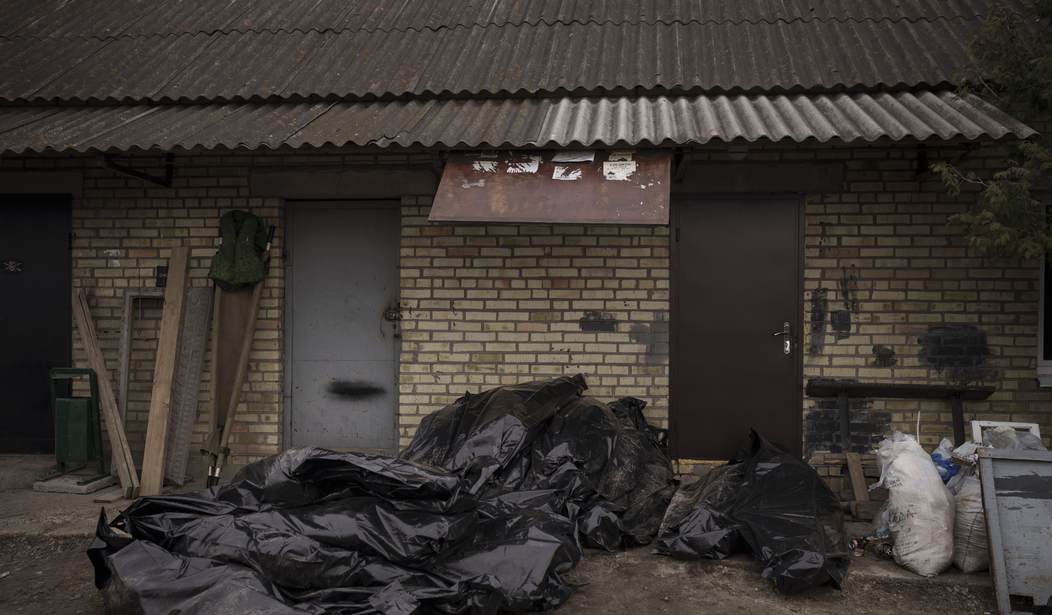Suppose you’re Russian President Vladimir Putin and you hear this from Lloyd Austin, your enemy’s secretary of defense.
“We want to see Russia weakened to the degree that it can’t do the kinds of things that it has done in invading Ukraine,” Austin said.
That’s a statement guaranteed to keep Putin fighting until he’s dead or Russia achieves victory. But it’s only the most recent escalation by Biden that literally forces Putin to keep fighting.
Referring to Russian actions in Ukraine as “genocide” is not helping end this war. And, of course, Russia is now responding with a rhetorical outburst of its own.
Russia accused NATO of creating a serious risk of nuclear war by arming Ukraine in a proxy battle as Washington and its allies met on Tuesday to pledge the heavy weapons Kyiv needs to achieve victory.
U.S. officials have shifted emphasis this week from speaking mainly about helping Ukraine defend itself to bolder talk of a Ukrainian victory delivering a blow to Russia’s ability to threaten its neighbours.
They have approved shipments of hundreds of millions of dollars in arms, including artillery and drones they held back from sending in earlier phases of the war.
At the rate Putin and Biden are going, both men are going to talk themselves into a nuclear war before too long.
Exaggeration? Perhaps. But in case you haven’t noticed, a rhetorical line has been crossed where Putin now speaks casually about nuclear war as if it were a real possibility. This is a psychological barrier that leaders rarely crossed during the Cold War but has become commonplace during the war in Ukraine.
So Austin’s stated goal of “weakening” Russia tells Putin that he must fight until he achieves the kind of victory that would squelch talk of “weakening” Russia under any circumstances.
The defense secretary was asked how he defined “America’s goals for success” in Ukraine. He first said Washington wants to see “Ukraine remain a sovereign country, a democratic country, able to protect its sovereign territory.”
Then, he said, the United States hopes Russia will be “weakened” by the war. “It has already lost a lot of military capability and a lot of its troops, quite frankly, and we want to see them not have the capability to very quickly reproduce that capability,” Austin said.
Austin said the United States hopes “to see the international community more united, especially NATO.” He cited the sanctions imposed on Russia by the United States and its allies as an example of how the war in Ukraine has made the security alliance more unified.
This is a feature, not a bug, of Biden’s war policy.
“Our support for Ukraine going forward will continue … until we see final success,” Blinken said after the first high-level U.S. visit to the Ukrainian capital since Russia’s invasion began. “The bottom line is this: We don’t know how the rest of this war will unfold, but we do know that a sovereign independent Ukraine will be around a lot longer than Vladimir Putin is on the scene.”
Ukraine will continue to receive ever more sophisticated arms from the United States in its attempt to thwart Putin’s designs in Eastern Ukraine. And Putin will continue to pour men and arms into the battle.
The war could go on for years. And the longer the war goes on, the chance for some kind of U.S. intervention will rise. Will we send so much aid and support to Ukraine that we’ll be unable to disengage and instead choose to take an active part in the fighting?
War carries its own logic, as von Clausewitz observed. What seems stupid and impossible to us today may look very different two or three years from now. Pray that President Biden is no longer the Commander-in-Chief then.










